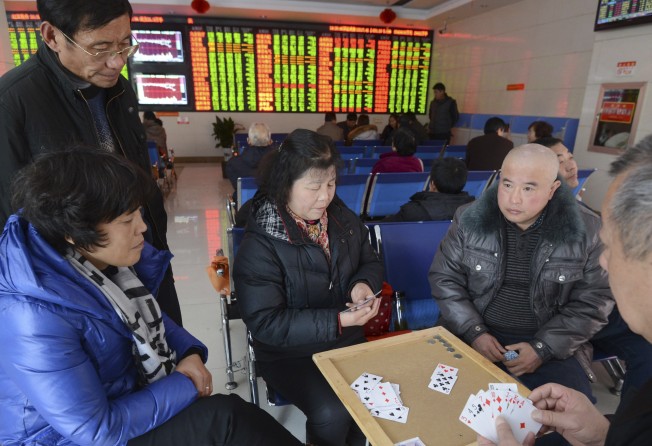Hong Kong, mainland China shares finish higher as Asia responds well to Fed rate rise
HSBC, China Construction Bank and ICBC among most heavily traded stocks

Stocks across Asia leapt on Thursday following the US Federal Reserve’s decision to raise interest rates, while mainland Chinese stocks soared to three-week highs.
United States interest rates will rise by 25 basis points for the first time in nearly a decade, the Fed announced on Wednesday, signalling an end to America’s near-zero rate regime.
The Hang Seng Index rose rapidly in the morning following the news, before slowly falling to finish up 0.79 per cent at a week high of 21,872.06. The H-Share index rose 1.34 per cent to 9,666.52.
Financials drove the share market in Hong Kong on Thursday, with HSBC, China Construction Bank and Industrial and Commercial Bank of China among the most heavily traded stocks.
HSBC shares surged by 2.83 per cent, rising to HK$61.80, while AIA rose by 1.40 per cent to finish at HK$47.10.
Ample Capital asset management director Alex Wong said the Hong Kong market had risen substantially on Wednesday in anticipation of the cut. But he said the local market had been held back by a drop in commodities on the back of a stronger US dollar.
“You are seeing a pull back in resources stocks like PetroChina ... so this rate rise actually created a polarising effect in Hong Kong because we are seeing a pullback in resources but an uplift in banking,” Wong said.
The Hong Kong Monetary Authority raised its base rates by 25 basis points to 0.75 per cent, in line with the Fed’s adjustment. HKMA head Norman Chan said on Thursday he expected gradual capital outflows from the city.
On the mainland, the Shenzhen Composite Index rose 2.72 per cent to 2,342.18, a three-week high and their second-highest close in nearly four months.
The sharp rise was mainly due to financial and industrial stocks, with East Money Information rising 2.91 per cent to 59.38 yuan. The ChiNext index surged as well, rising by 2.63 per cent to 2,835.70.
The Shanghai Composite Index rose by 1.83 per cent to 3,579.99, the highest in two weeks, driven by financial and industrial stocks, while the CSI 300 Index of large-cap stocks in Shanghai and Shenzhen closed up 1.91 per cent at 3,755.88.
Wong said the surges in mainland indices were surprising because the US rate rise would not have a direct impact on the mainland stock market.
“I think it is a sentiment thing – we are not at any crisis point and so mainlanders think the situation has stabilised,” he said. “Trading was actually lower in China, but the stocks remained firm and edged higher.”
The US dollar rose on news of the rate rise, which signalled the strength of the American economy, creating a polarising effect across the Asia region.
“For Europe and Japan, definitely the dollar strength is supporting their equity markets because the stronger dollar actually means better competitiveness of their currencies,” Wong said.
“But for countries like South Korea they have underperformed because people would be cautious about the international market ... they fear about their bank repayment ability because of the dollar’s strength.”
Across the region, stock markets performed well following the rate rise announcement, with Japan’s Nikkei rising 1.59 per cent to 19,353.56, and Australia’s All Ordinaries index finishing 1.46 per cent higher at 5,102.